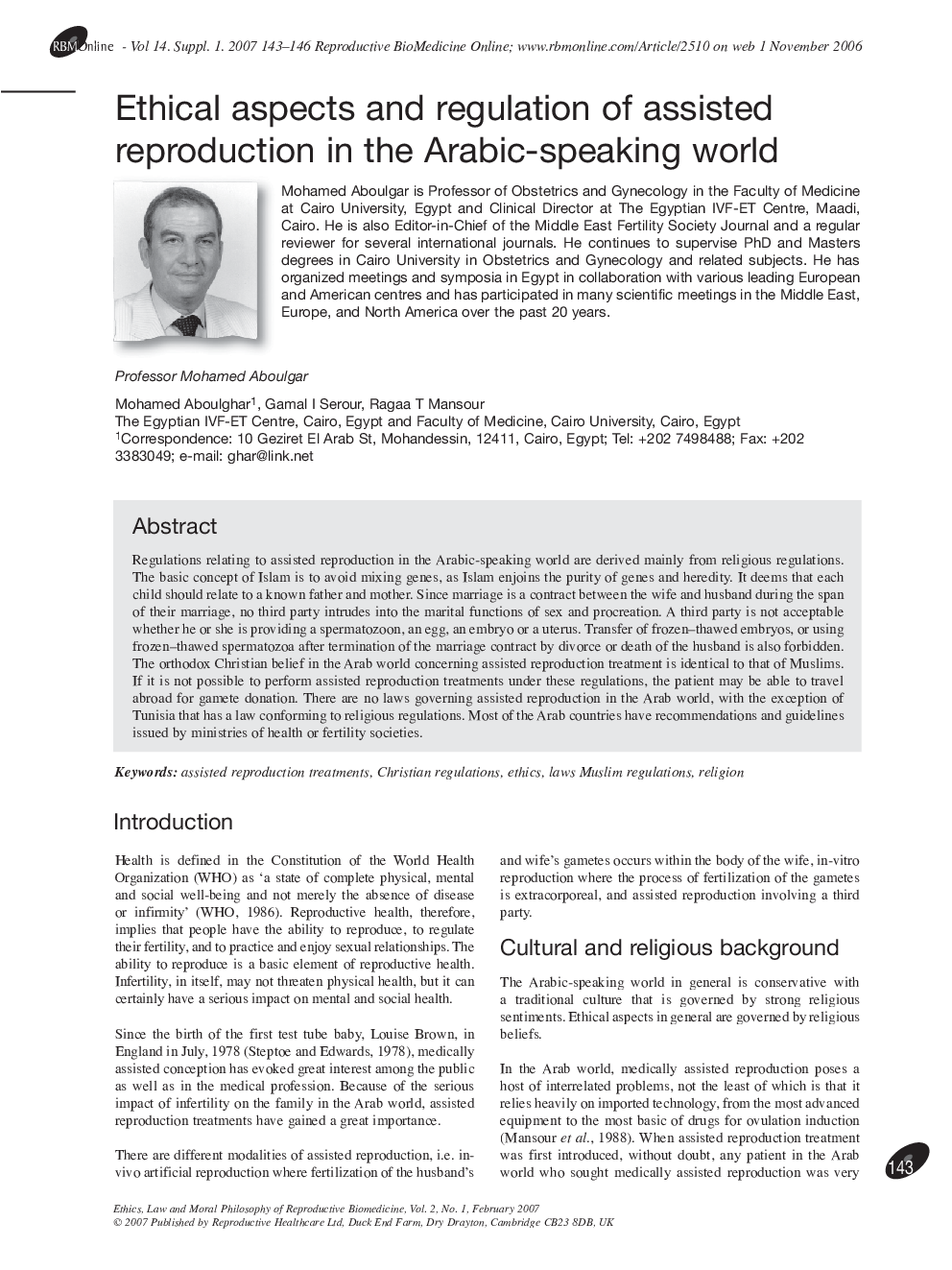| Article ID | Journal | Published Year | Pages | File Type |
|---|---|---|---|---|
| 3973503 | Reproductive BioMedicine Online | 2007 | 4 Pages |
Regulations relating to assisted reproduction in the Arabic-speaking world are derived mainly from religious regulations. The basic concept of Islam is to avoid mixing genes, as Islam enjoins the purity of genes and heredity. It deems that each child should relate to a known father and mother. Since marriage is a contract between the wife and husband during the span of their marriage, no third party intrudes into the marital functions of sex and procreation. A third party is not acceptable whether he or she is providing a spermatozoon, an egg, an embryo or a uterus. Transfer of frozen–thawed embryos, or using frozen–thawed spermatozoa after termination of the marriage contract by divorce or death of the husband is also forbidden. The orthodox Christian belief in the Arab world concerning assisted reproduction treatment is identical to that of Muslims. If it is not possible to perform assisted reproduction treatments under these regulations, the patient may be able to travel abroad for gamete donation. There are no laws governing assisted reproduction in the Arab world, with the exception of Tunisia that has a law conforming to religious regulations. Most of the Arab countries have recommendations and guidelines issued by ministries of health or fertility societies.
